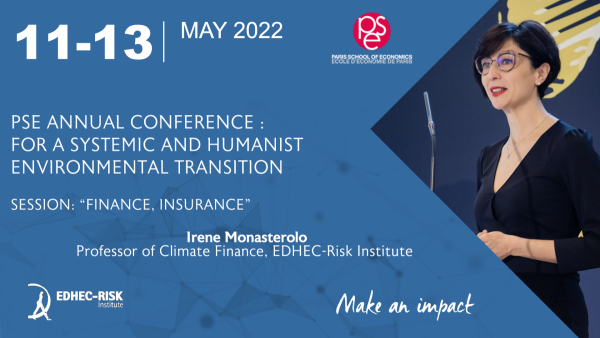PSE Annual Conference: For a Systemic and Humanist Environmental Transition

Presentation
Paris School of Economics organizes a conference on global issues each year. The aim of the 2022 conference, entitled “For a Systemic and Humanist Environmental Transition”, will be to launch the PSE - Environment Initiative, which mobilizes all the school toward new research, teaching and public outreach on the environmental transition.
PSE wishes to engage in a multi-dimensional economic approach to environmental issues, which integrates more strongly the behaviors of households and firms, with a focus on an international context, and which takes into account the political constraints and principles of equity that condition the range of possible choices. This implies to commit to covering both the “efficiency” and “equity” aspects of environmental transition. These dimensions cannot be separated in the presence of externalities and constraints on policies linked to the behavior and motivations of individuals and economic actors.
Major themes will be addressed like Sustainable Cities and Sustainable Mobility, Development and Globalization, Energy and Climate, Ethics and Inequality, Political economy and Regulation, Finance and Insurance.
Further information on the conference can be found on the PSE - École d’économie de Paris website.
Irene Monasterolo, Professor of Climate Finance, EDHEC-Risk Institute, will participate in the Finance, Insurance session, together with:
- Speakers: Catherine Bobtcheff, PSE, CNRS; Philipp Krueger, University of Geneva; Fanny Henriet, PSE, CNRS
- Chair: Anna Creti, Professor and Director General, Climate Economics Chair, University Paris Dauphine
- Discussant: Patricia Crifo, Professor, École Polytechnique, CREST
Irene will present her recent paper "Asset-level climate physical risk assessment and cascading financial losses".
In this paper, co-authored with Giacomo Bressan (WU Vienna University of Economics and Business), Anja Duranovic (WU Vienna University of Economics and Business), Stefano Battiston (University of Zurich - Department of Banking and Finance; Ca Foscari University of Venice), she develops a methodological framework for asset-level climate physical risk assessment that connects for the first time asset-level information (financial, extra-financial and climate), to firms’ revenues, macroeconomic dynamics, financial valuation and investor’s risk. She combines the acute and chronic impacts of climate change. Shocks on physical assets are translated into adjustments in the financial valuation of the equity contracts by means of a Climate Dividend Discount Model, and then into an adjustment of investors’ Expected Shortfall. She applies the methodology to the assessment of cascading risk for European investors who hold equities of firms that have assets located in Mexico and exposed to hurricanes.
Results confirm the importance of the asset-level approach for financial risk assessment. Comprehensive asset-level physical risk assessment should be a main concern for investors and financial supervisors.



